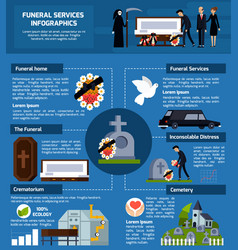Delve Into The Amazing Progression Of Catholic Institutions And Their Significant Function In Education And Learning-- Do Their Practices Supply A Pathway To Future Discovering?
Delve Into The Amazing Progression Of Catholic Institutions And Their Significant Function In Education And Learning-- Do Their Practices Supply A Pathway To Future Discovering?
Blog Article
Material Written By-McCurdy Lanier
When you think about the background of education, Catholic colleges attract attention for their ingrained traditions and enduring influence. These organizations started as a way to instill belief and values, however they've adapted incredibly over centuries. Today, they play a vital duty fit not just scholastic success yet also moral integrity. What's interesting is exactly how they've taken care of to thrive in the middle of changing cultural landscapes, raising questions regarding their future relevance and influence.
The Origins of Catholic Education And Learning: A Historic Point of view
Catholic education and learning traces its roots back over 1,500 years, when early Christian communities recognized the demand for organized knowing. You'll discover that these areas aimed to pass on their faith and worths with education and learning.
Monasteries and cathedral colleges ended up being facilities of understanding, supporting both spiritual and intellectual growth. As you dive much deeper, you'll see that the educational program often consisted of philosophy, theology, and the liberal arts, designed to develop versatile people.
In time, the Church developed more formal organizations, ensuring that education continued to be accessible to all. The commitment to training moral values and cultivating a feeling of community has lingered through the centuries, forming the academic landscape and influencing many lives worldwide.
This enduring heritage continues to motivate Catholic education today.
The Advancement of Catholic Schools With Cultural Contexts
As cultures advanced, so did the function of Catholic colleges, adjusting to the social contexts in which they existed. In the early years, these institutions focused mainly on religious instruction, but as communities diversified, they began to incorporate regional languages, personalizeds, and academic demands.
Elementary Christian schools Near Me Glen Lake would certainly notice that Catholic schools often ended up being facilities for social communication, promoting a feeling of belonging amongst trainees from numerous backgrounds. In several areas, they dealt with societal problems, such as destitution and discrimination, by providing available education for all.
As you explore various cultures, you'll see how Catholic colleges have actually changed their curricula and teaching methods, reflecting the values and difficulties of their settings while remaining true to their fundamental mission of faith and academic excellence.
The Modern Duty and Influence of Catholic Schools in Society
In today's globe, Catholic schools play an essential function fit not just the instructional landscape, however additionally the more comprehensive community.
You'll discover that these organizations stress values like regard, empathy, and social justice, fostering well-shaped individuals who contribute favorably to culture. By concentrating on scholastic excellence and moral development, Catholic schools prepare pupils for future obstacles, nurturing essential thinking and management abilities.
They frequently offer diverse populations, linking spaces in access to top quality education. In addition, you could notice their dedication to service, urging trainees to take part in area outreach and volunteer job.
This mix of education and ethical guidance makes Catholic colleges a considerable pressure, cultivating responsible people that can impact their communities right.
Conclusion
In conclusion, Catholic institutions have an abundant history that's shaped their long-lasting influence on culture. You've seen just how they've adapted to various social contexts while keeping a commitment to faith, values, and academic quality. https://www.tallahassee.com/story/news/2021/04/25/ben-crump-bethel-missionary-baptist-church-share-history-equality/7240512002/ , they continue to play a crucial role in fostering neighborhood, promoting social justice, and nurturing accountable people. As you review their tradition, it's clear that Catholic institutions continue to be a powerful pressure for positive change in the world.
